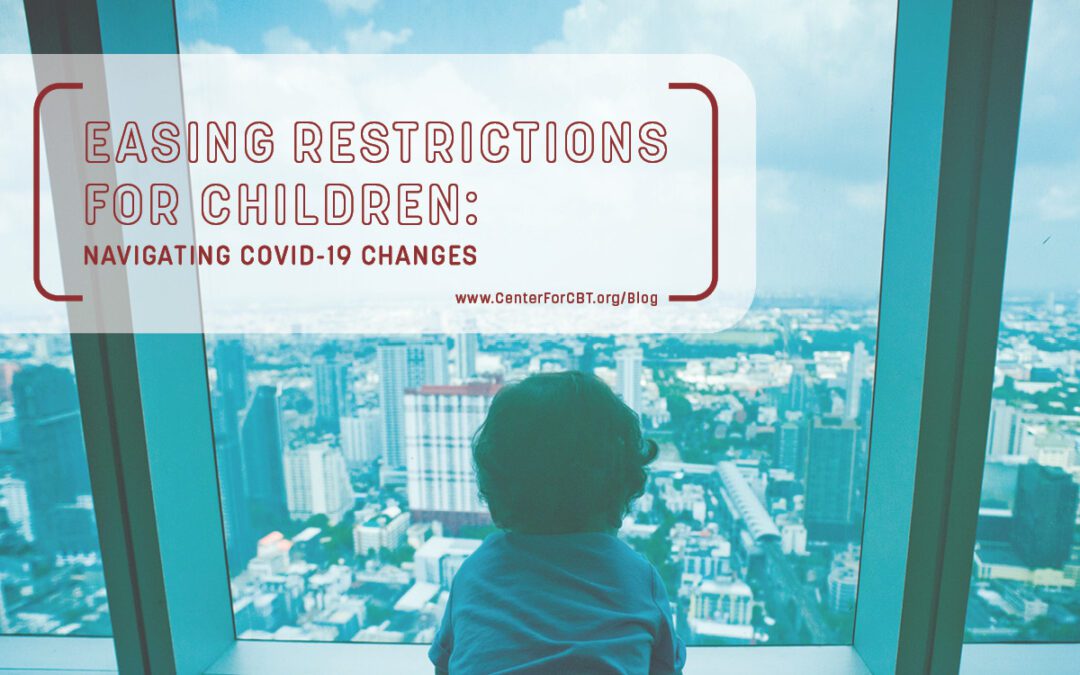New Jersey has just entered phase two of “Opening Up America Again,” easing the restrictions put in place at the onset of COVID-19. While masks and social distancing will still be required, many public venues will reopen to patrons. Many are eager to return to hair salons and retail stores, as well as family-oriented establishments like childcare centers and swimming pools. However, even though these restrictions are eased at a state level, not all families will feel comfortable adopting these more relaxed guidelines.
Even experts don’t fully agree on what’s safe. A recent survey asked over 500 epidemiologists when they would resume certain activities, with responses ranging from “this summer” to “never again.” Though there is great variety in these responses, we can still reasonably determine what is or isn’t safe by listening to experts. Most generally agree that outdoor activities and small groups are safer than being indoors or in larger groups, and information like this can help guide us in our own decisions. But ultimately, many of us are torn between staying safe, and maintaining quality of life.
Many factors play into this decision, including risk tolerance, a family member’s susceptibility to illness, expectations for future treatment, and willingness or ability to continue to shelter in place. Families will need to make individualized decisions on what they feel comfortable doing— or not doing— because each family has its own needs. However, this lack of consensus brings about an additional challenge: how to explain to your child why the rules for your family may be different from the rules for other families. If your family doesn’t feel comfortable easing restrictions right away, your child may start asking why their life can’t “go back to normal” while their friends seemingly can.
The situation consists of nuances that can be difficult for a child to grasp, and these tips offer guidance to prepare you for the talk with your children about easing restrictions:
- Check in with your child to get a sense of their current feelings about the coronavirus situation, and encourage them to open up. Most of us have gotten used to this new normal (whether we like it or not) and may feel differently than we did when restrictions were first put in place. Your child’s feelings about the situation may have changed, too. Learning what their current perspective is (are they feeling scared? bored? frustrated?) will help guide the rest of the conversation.
- Answer their questions. Just as you may be questioning when you’ll be returning to the office, your child may be wondering the same about school, summer camp, and visits with friends. Most importantly, be honest with your child. If you don’t know when they’ll be able to go back to school, say so. At the same time, you can reassure your child that this situation is temporary, and while you may not know the exact timeline, you do know that they will eventually go back to school.
- Offer them updates and reassurance as you learn new facts about the current situation. Have there been changes since you last had a conversation with your child about the virus? Sharing your knowledge in a calm manner will help your child feel informed, but still safe. A good rule of thumb is to let your child guide the discussion, as too much information can lead to anxiety. If your child does express worry about themselves or loved ones getting sick, provide them with age appropriate facts and remind them of the safety precautions they can take. If you need more specific guidelines, your child’s pediatrician is a great place to start. Pictures can also be a great help in explaining this information to children, and this comic from NPR helps answer the common questions children have about the coronavirus.
- Discuss the importance of remaining vigilant as restrictions begin to ease. It might be difficult for children to grasp the idea that just because places are reopening doesn’t mean the virus is gone. Discuss with your child what changes they should expect to see in the coming weeks while emphasizing the importance of continuing to engage in behaviors that keep them safe, like frequent hand washing, social distancing, and wearing masks.
- Explain what these new guidelines will look like for your family. Be specific when explaining to your child what your family will or won’t be doing during the next few weeks, and provide your child with an honest rationale as to why. Maybe you have a family member that lives with you that is at greater risk of becoming ill due to a preexisting condition, or maybe you feel that the risk still outweighs the benefit. This will help them to better understand that the rules aren’t arbitrary, but are meant to keep them and their loved ones safe.
Explaining the evolution of the current situation to your child is not an easy task, and may require several heart-to-heart conversations. The key to helping them understand these developments is to be honest, open, and reassuring, which will help you and your children feel more confident going forward.



